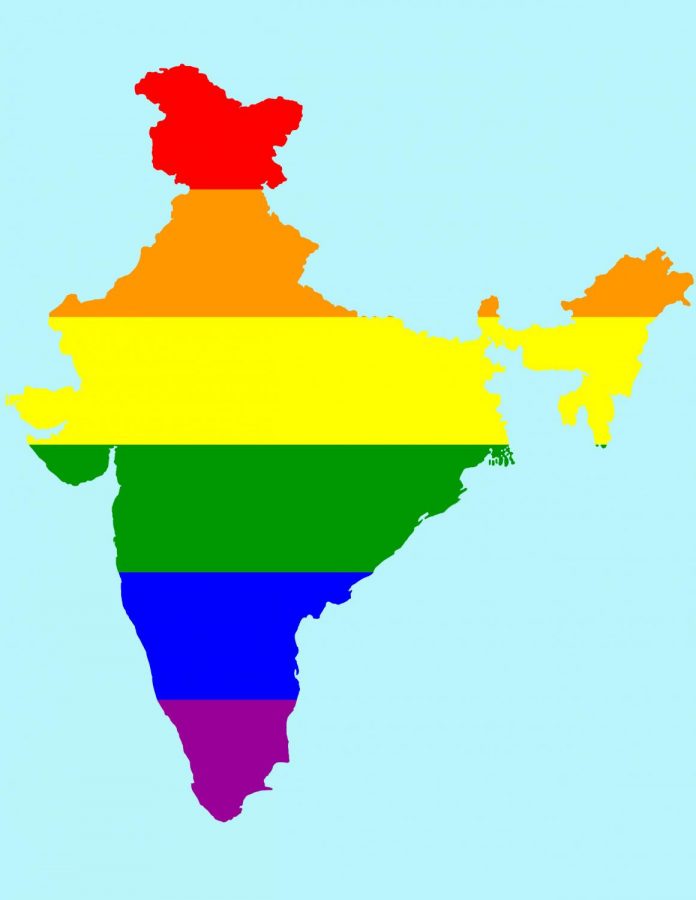India Removes Colonial Era LGBTQ Ban
The ban on LGBTQ sex that has existed since the 1800s has been revoked after activists successfully got a unanimous Supreme Court ruling in their favor. To many in the gay community, this signifies major progress as several nations continue the push for equal rights. Issaquah High School students weighed in on how important this was for them and the United States.
October 2, 2018
On Sept. 6, India struck down a ban that had existed since British colonial rule in 1860. As of the unanimous Supreme Court ruling, prosecution for partaking in consensual gay sex can no longer be held against a large population within the nation. Previously, those in gay relationships could be held for up to 10 years in jail, causing much of India’s gay community to remain oppressed and fearful of expressing their identities publicly. Thousands of Indian citizens in support of the motion joyously took to the streets of New Delhi to celebrate. The wave of progress towards equal rights for LGBTQ groups seems to have swept over increasing numbers of countries in the past few years.
The battle on this ban was a long time coming. Since 2001 activists had attempted, and even succeeded in 2009 for at least the National Capital area, to have it struck down. However the law was reinstated in 2013, initiating the push to again have it repealed, says Reuters’ India throws out ban on gay sex, but challenges remain. As to how the act actually affected those living under its influence, citizens who identified as gay were afraid to even approach the justice system if they were victims of crimes, as they could be arrested for being a part of the community, or could be harrassed by the legal system. According to NPR’s article Indian Supreme Court Overturns Ban On Gay Sex, currently several people who partook in the parades after the law alteration still fear prosecution or attack, as the stigma against gay relationships persists among conservative and religious groups.
Within the Issaquah area this major movement seems to have gone mildly unnoticed for many students, and several interviewed had yet to hear of any information on the issue. Even those who keep up with national news have not been exposed to much about the matter, perhaps due to our own nation’s law change in 2015, when gay marriage was ruled legal, making this step for India feel less relevant. Senior Matthew Bentsen said, “I don’t think it affects me personally but as a person in the world it makes me happy to see since it’s a big step forward for people’s rights and civil liberties. So while the law doesn’t change things here, I think the overall attitude towards gay relationships will change as countries remove laws that stigmatize gay marriage…” regarding how important the law is to him as a resident of the Seattle area. Senior Audrey Jacobson shared similar opinions, believing that all nations of the world are affected by each other’s progress and “basic human rights are not something that should be unique to a single nation, so it’s kind of everyone’s fight.” Her sentiments are proving to be reflected in Singapore, as following the strike down of the gay sex ban in India, a large diplomatic figure is now calling for his nation to alter its own strict laws on gay rights, according to Reuters’ Singapore diplomat urges gay sex ban challenge after India ruling. The general feeling of Issaquah High School students appears hopeful that this trend will continue to permeate additional countries after India and Singapore: “It’s definitely going to help, there will be backlash as there always is, but having the law on their side will help a push forward. I do think that having the law itself changed will help, it gives [gay relationships] legitimacy,” said sophomore Richard Martin. Freshman Melanie Darstham agreed, saying “I think it will drive faster change in the future since now here are more gay relationships openly.”
Among the student body, views on how accepting the United States of America has become within modern times remained somewhat mixed regarding the degree to which we still have to work on equality. Still, most agreed that America had yet to reach true equality. Junior Jason Liu says, “We still have a long way to go, but the U.S. kind of prides itself on equality. I don’t think we are too far away but we still have a way to go.” Others felt more strongly that there was work to be done, such as junior Diane Lee: “We definitely do in terms of people’s overall attitudes, maybe not legally, but in our culture, especially in some regions where certain groups are still not accepted.”



